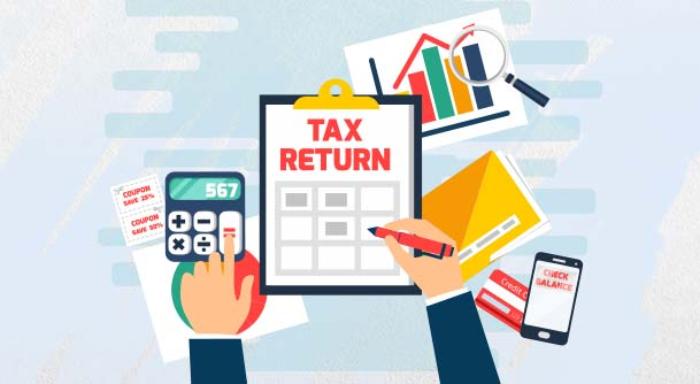6 Important Income Tax Rules
Blog Title
6708 |
6/3/25 6:07 AM |
Paying income tax is the primary responsibility of every earning citizen. However, there are various means by which the income tax liability of an individual can be reduced. This is referred to as tax planning. A good tax plan takes advantage of various provisions that can reduces your tax liability and increases your savings. Below is a list of six income tax rules to keep in mind while creating a tax plan:
Choose the Right Regime for You (Old vs New)
Since 2020, India has had not one, but two separate income tax regimes. The Old Tax Regime is the original regime that has been in effect since the inception of the Income Tax Act, 1961. The New Tax Regime was introduced during the Union Budget of 2020 and has since become an integral part of India’s income tax system.
So, what’s the difference between the two regimes? Simply put, the Old Tax Regime has higher income tax rates but benefits from numerous deductions, while the New Tax Regime has lower tax rates but does not have all the same benefits. Currently, the New Tax Regime is the default regime, but each taxpayer has the choice to opt for the Old Tax Regime if they think it will be more beneficial for them.
The best regime for you will completely depend on your current income level and investments. If you are not in the top income tax slabs, the New Tax Regime might be preferable due to its lower tax rates. However, if you have invested your money into various tax saving investments, the Old Regime should be your ideal choice, as most tax deductions are not applicable for the New Tax Regime.
Income Tax Slabs
Each taxpayer falls into a specific ‘income tax slab’ based on their total annual income. Your income tax rate will depend on your tax slab. Note that the tax slabs will differ based on whether you have chosen the Old or New Tax Regime. To find your tax slab, simply deduct the exemption limit from your total income (giving you your taxable income), then refer to the tables given below. Refer to the Old Tax Regime table only if you have opted for the old regime while tax filing.
New Tax Regime |
|
Income |
Tax Rate |
Up to ₹3 Lakhs |
No Tax |
₹3,00,001 – ₹ 7,00,000 |
5% |
₹7,00,001 – ₹10,00,000 |
10% |
₹10,00,001 – ₹12,00,000 |
15% |
₹12,00,001 – ₹15,00,000 |
20% |
Over ₹15 Lakhs |
30% |
Old Tax Regime |
|||
Income |
Tax Rate (Under 60) |
Tax Rate (60-80) |
Tax Rate (Over 80) |
Up to ₹2.5 Lakhs |
No Tax |
No Tax |
No Tax |
₹2,50,001 – ₹3,00,000 |
5% |
No Tax |
No Tax |
₹3,00,001 – ₹5,00,000 |
5% |
5% |
No Tax |
₹5,00,001 – ₹10,00,000 |
20% |
20% |
20% |
Over ₹10 Lakhs |
30% |
30% |
30% |
Exemption Limit
The exemption limit refers to the amount of income that is completely tax free irrespective of your total annual earnings. The exemption limit for the New Tax Regime is ₹3 lakhs. This means that you need to deduct ₹3 lakhs from your annual salary to find out your actual taxable income.
The exemption limit for the Old Tax Regime differs based on the taxpayer’s age, with ₹2.5 lakhs being the limit for anyone under 60. For senior citizens over 60, the exemption limit is increased to ₹3 lakhs, while for super senior citizens (80+) the exemption limit is ₹5 lakhs.
Deduction Under Sections 80C, 80CCC, 80D, 80G, & 10(10D)
Deductions Under Section 80C & 80CCC
Amount invested in life insurance policies, ULIPs, endowment plans, term plans, public provident fund, NSCs, principal repayment of home loans availed, etc. can be claimed as a deduction under section 80C. Deduction under section 80CCC can be claimed for investments in pension schemes.
Such deductions can be claimed up to a limit of ₹ 1,50,000.
Deduction Under Section 80D
Medical insurance availed for the benefit of self, spouse, parents, or dependent children can be claimed as a deduction under section 80D. Amount of deduction is limited to ₹ 25,000. In case if medical insurance is for the benefit of a senior citizen the above-mentioned limit is increased to ₹ 50,000. Such medical premium must be paid in any mode other than cash. You can also claim tax deductions of up to ₹ 5,000 in case of preventive health check-ups.
Deduction Under Section 80G
Deduction under section 80G can be availed for amount donated subject to the limits laid down. If donation is made in cash, then the payment needs to be below ₹ 2,000 for Section 80G deductions. Cash donations above ₹ 2,000 cannot be claimed under Section 80G. Ensure that large donations are always made via alternative payment methods.
Deduction can also be claimed for donation to a political party or an electoral trust, provided it is made in any mode other than cash. There are four categories under Section 80G:
Donations that get 100% deduction (no qualifying limit)
Donations that get 50% deduction (no qualifying limit)
Donations that get 100% deduction (conditional to qualify limit)
Donations that get 50% deduction (conditional to qualify limit)
Deduction Under Section 10(10D)
The maturity and death benefit of a life insurance policy can be tax exempt under the provisions of Section 10(10D). Death benefit is always tax exempt, except in the case of keyman insurance.
Maturity benefit may be applicable for tax exemptions, provided that your policy meets the section’s various terms and conditions. To know more about the various exceptions and terms of Section 10(10D), click here.
Capital Gains on Certain Securities
Capital gains arising on transfer of equity shares, units of an equity-oriented fund or units of a business trust are exempt from tax under section 10(38). Provided, if such securities are sold within a period of less than one year from its date of acquisition then capital gain will be taxable at the rate of 15%
Capital gains arise on the transfer of any capital asset. Long term capital gains are subject to tax at 20% while short term capital gains are included in the total income of the taxpayer. Exemption under 54 series can be availed to reduce the tax liability on capital gains. Various exemptions are available under section 54 depending upon the nature of capital gains and asset transferred. Exemption can be claimed if the amount of capital gain is invested as per conditions specified.
Deduction Under Rajiv Gandhi Equity Savings Scheme
This deduction is available to a first-time retail investor. It is subject to various restrictions. Total income of the taxpayer must not exceed Rs. 12 Lacs in the previous year in which deduction is availed. Amount of deduction is limited to 50% of amount invested or Rs. 50,000, whichever is lower. Further, the lock in period of the investment made is 3 years. This scheme was introduced in order to boost investments in capital markets.
ITR Filing Deadlines
Filing for Income Tax Returns (ITR) starts on April 1st (beginning of new financial year) of each year. The final date for filing ITR is usually July 31st. Filing your income tax returns after the final date can lead to penalty charges of ₹5000 or more. So, taxpayers need to ensure that their tax filing is completed before the final date stipulated by the government. However, it is important to note that these dates can change due to delays or extensions imposed by the government. For example, in 2025, the final deadline for filing ITR has been extended to September 15th.
Conclusion
Reducing your tax liability is an essential step to growing your savings. Remembering the six tax rules listed above will help you come up with a comprehensive tax plan that maximizes your savings in the long term. Tax planning is a must for any successful financial plan! So, keep these points in mind and use every deduction you can to reduce your tax burden as much as possible.
Chirag Iyer - BFSI Enthusiast
Chirag is a writer and an avid reader who loves to drink coffee! His other interests include boxing, karate, and singing.










